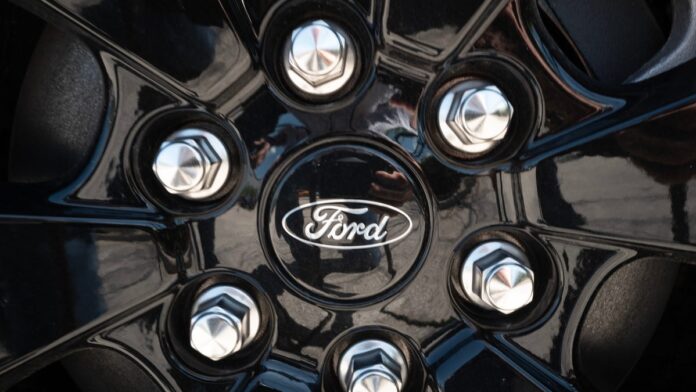In This Story
Ford Motor Co. (F) said Wednesday that it would scrap plans for its all-electric three-row SUVs and delay its full-size electric truck, citing a need to focus on affordability in a crowded market.
While electric vehicle sales are rising, they’re doing so at a slower pace than the industry had hoped for as consumers remain skeptical. Ford’s new plan to grow in the increasingly competitive market is to delay its new launches and focus on making its cars cheaper and with longer driving capabilities. Its annual capital spending on EVs will fall from 40% to 30%, the company said.
High prices and range anxiety — the fear that an EV will run out of juice without any charging stations nearby — are among the most common reasons consumers say they haven’t purchased an electric car.
Ford said it would cancel its plans to develop electric three-row SUVs, which the automaker had previously said would be delayed by two years to a 2027 release date. Instead, Ford will take a non-cash write-down of $400 million and focus on making hybrid three-row SUVs, taking a page out of Toyota Motor’s book.
In May, Ford CEO Jim Farley praised hybrid vehicles and suggested they will be a core part of the auto market, not just a transitionary tool for EV adoption. Ford on Wednesday said it will also sell a hybrid version of its next-generation F-Series Super Duty pickup trucks, which have been a bright spot for the automaker.
“As the global leader in pickup trucks, we are future-proofing this valuable franchise across all sizes with hybrid, electric and other electrified propulsion options, giving individual customers and businesses choice based on how they use their trucks,” Farley said in a statement.
On the EV front, Ford said it needs to focus on making its next EVs cheaper, pointing to the advantages of Chinese rivals that have leveraged vertical integration and low-cost engineering to keep prices low. The automaker is working on a new lost-cost platform, which is expected to feature its first vehicle — a mid-sized electric pickup — in 2027.
As part of that, Ford has pushed back its full-size electric truck — “Project T3″ — back by more than a year to the second half of 2027. That will allow the company to “utilize lower-cost battery technology” and take advantage of other new technology, it said in a statement. Before both the T3 and the unnamed pickup, Ford will launch an electric commercial van, which will begin production in 2026 in Ohio.
Ford is also counting on the $7,500 tax credits and other benefits included in President Joe Biden’s Inflation Reduction Act (IRA), which could be killed in a possible second term for former President Donald Trump.
The automaker said it will aim to move some Mustang Mach-E battery production from Poland to Michigan next year to quality for IRA benefits. Ford’s BlueOval Battery Park Michigan is also on track to begin making EV batteries in 2026, which will also qualify for IRA benefits. Batteries for the F-150 Lightning and the all-electric commercial van are expected to enter production next year.
“An affordable electric vehicle starts with an affordable battery,” Farley said in a statement. “If you are not competitive on battery cost, you are not competitive.”
In This Story


